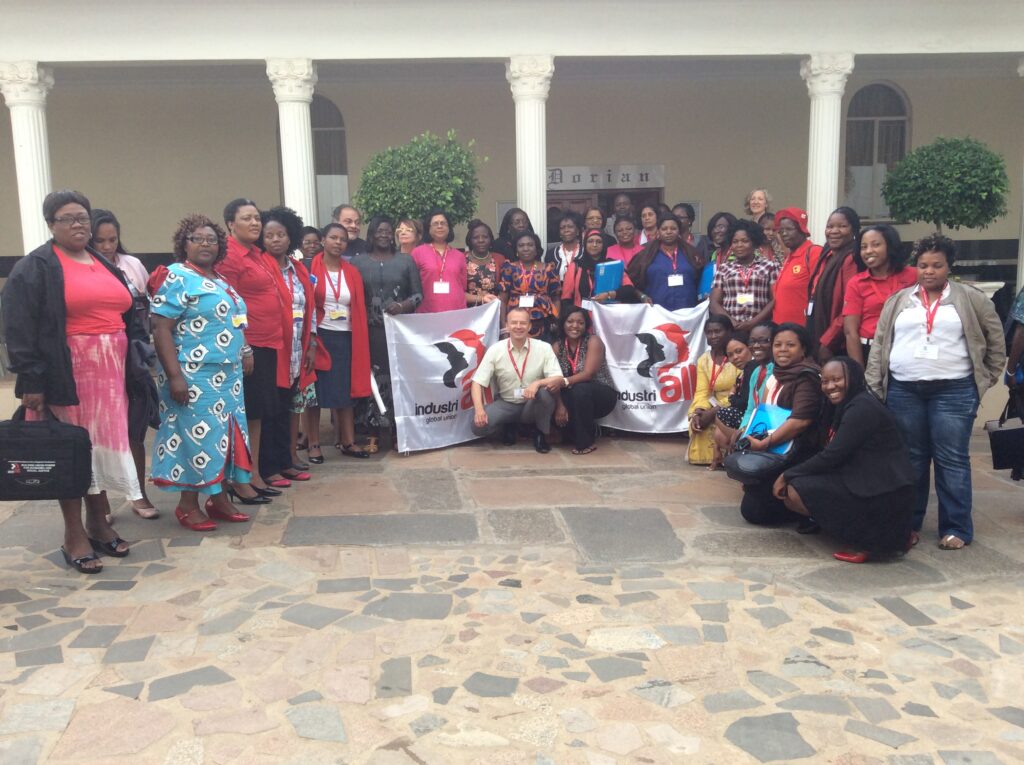16 October, 2014Women at IndustriALL Global Union’s Sub-Saharan Africa regional women's conference have called for a 40 per cent quota for women's representation at all levels of the organization, following a decision on 14 October 2014 in Pretoria, South Africa.
IndustriALL’s general secretary Jyrki Raina told the conference: "Women and men take decisions better than men alone."
This quota must, however, only be seen as one measure on the way toward achieving gender parity. The conference adopted a resolution which in addition to the call for the 40 per cent quota, mentions health and safety, precarious work, maternity protection, women's leadership, and HIV and AIDS.
Despite a booming economy in Africa, women still face difficulties in the workplace. Closing the gender gap would reduce hunger and poverty. The conference took place against the backdrop of the Ebola epidemic – as always women are the most affected by the health scourges.
At the opening, the conference welcomed Senzeni Zokwana, ex-Vice-Pesident of IndustriALL who is now the Minister of Agriculture, Forests and Fisheries of South Africa. He stressed the need to create jobs in the face of climate change and fluctuating markets. Africa must process her own products instead of exporting everything, according to Lydia Nkopane from the National Union of Miners (NUM), who said, "We export raw materials and still live in poverty."
Participants had a presentation on the challenges facing women and unions in the region. Among them are violence against women, the informal economy, HIV and AIDS, and maternity protection.
In Sub-Saharan Africa the informal economy makes up 66 per cent of non-agricultural employment. Seventy-four per cent of women and 61 per cent of men are informally employed. This work is marked by extremely precarious working conditions, health and safety hazards and the involvement of families and children. Women's needs must be addressed in a particular way. Here again it is a question of organizing women around their concerns. One of the concerns in mining communities for example is HIV and AIDS.
In Sub-Saharan Africa women are infected by HIV at least five to seven years earlier than men; young women are twice as likely as young men to be living with HIV. As girls are beginning to protect themselves, the rate of new infections is declining. However, these gains are fragile and must be sustained.
It would help if more countries ratified ILO Convention 183 on maternity protection. Up to now it has only been ratified by Benin, Burkina Faso and Mali in the region. Collective agreements could make improvements to women's lives if unions negotiated on something other than wages. Unfortunately maternity and women's issues are usually the first to be compromised.
The NUM highlighted the safety hazards of women working underground. Unfortunately there is still a hostility towards women and their demands. In the past few years the worst form of gender-based violence was perpetrated underground, namely murder. The only thing the Department of Mineral Resource did was to issue an instruction that "no women must work alone underground " but that does not compensate any loss of life. The unions have to have this as a priority and regulate it and compensate it.
At the regional conference, held over the following two days, women made up 35 per cent of participants.
